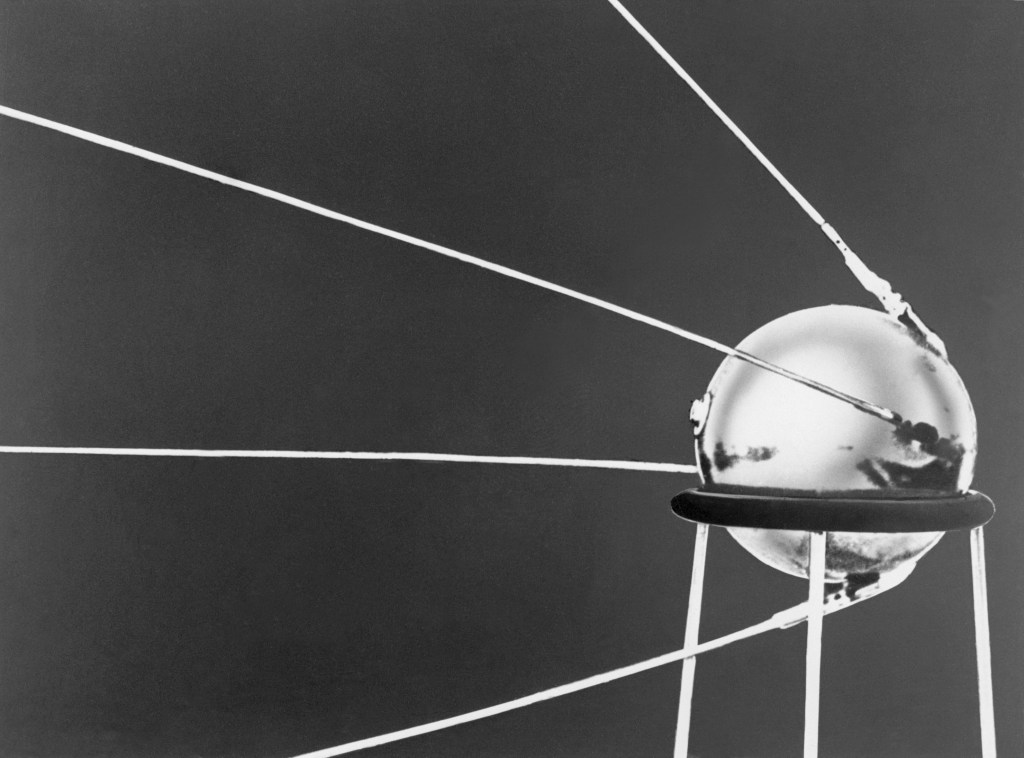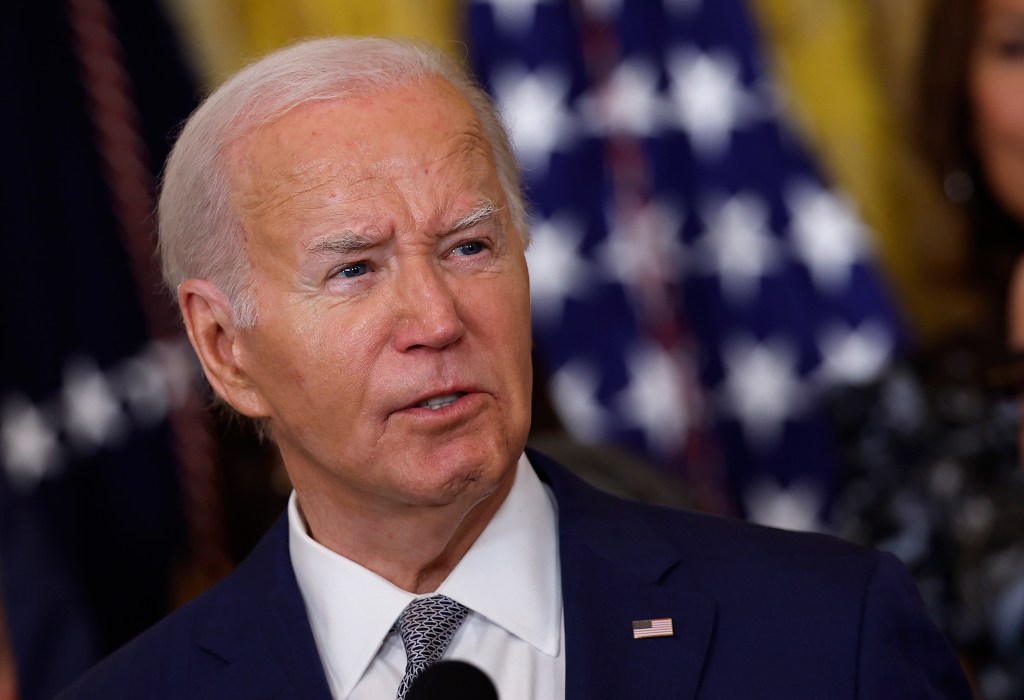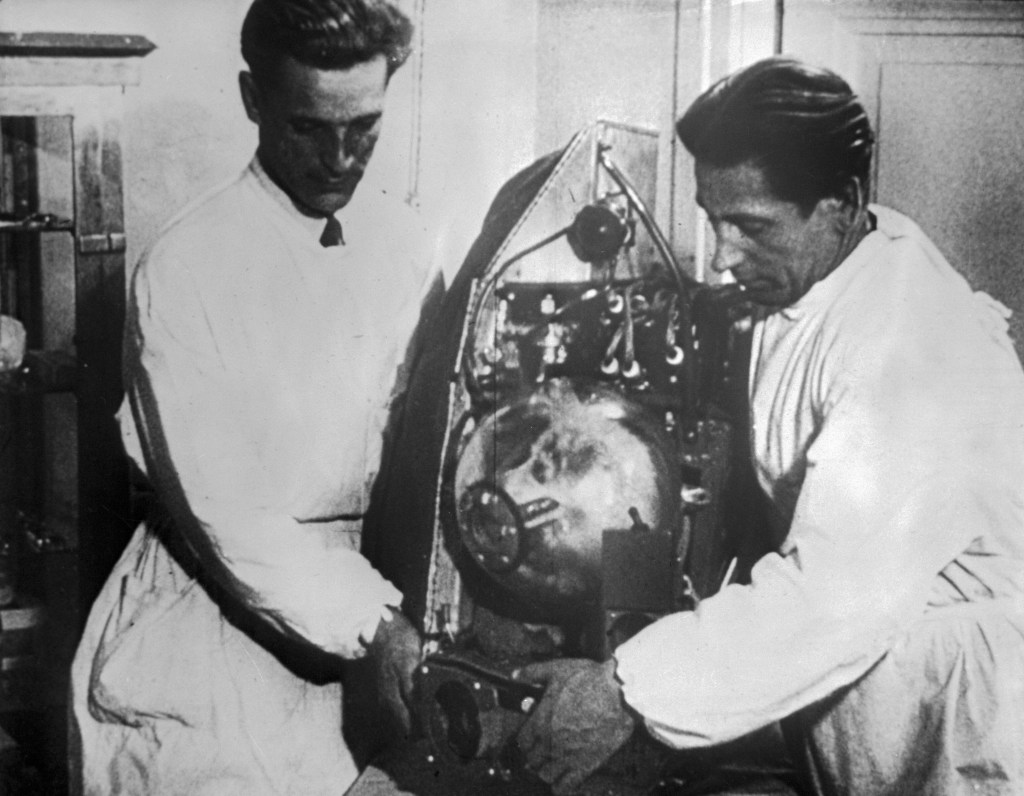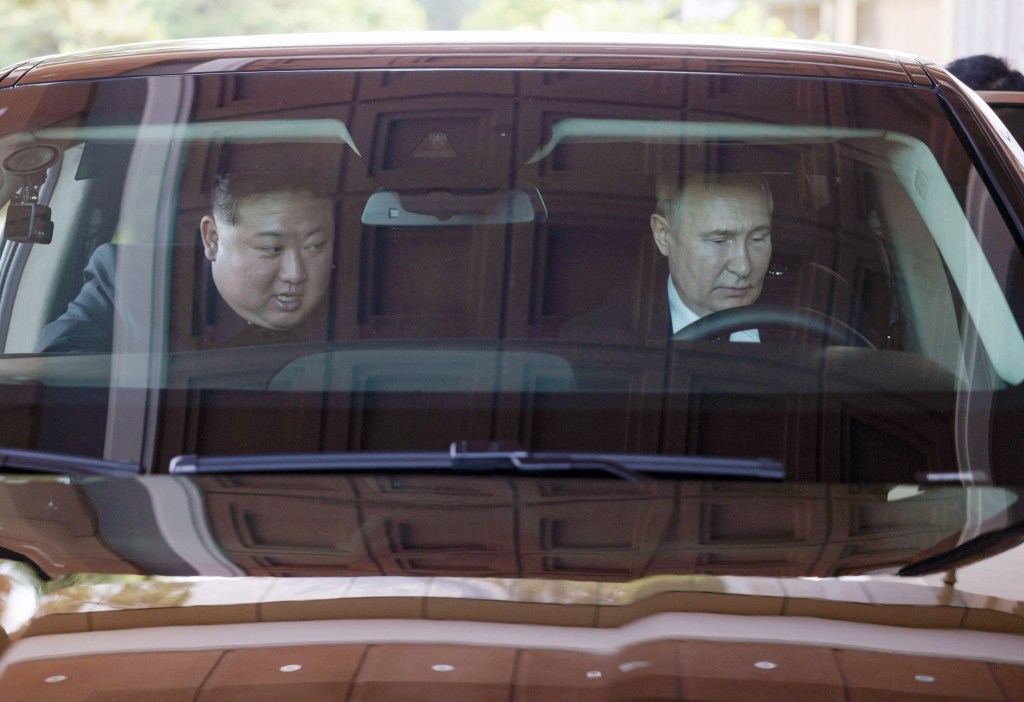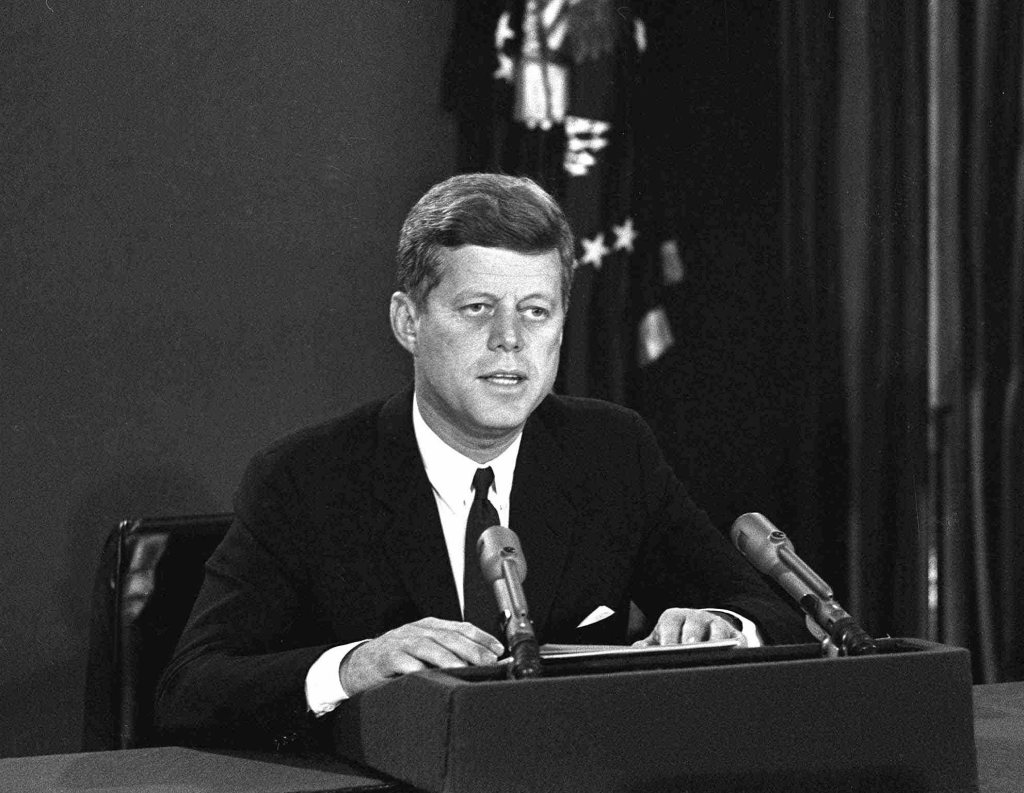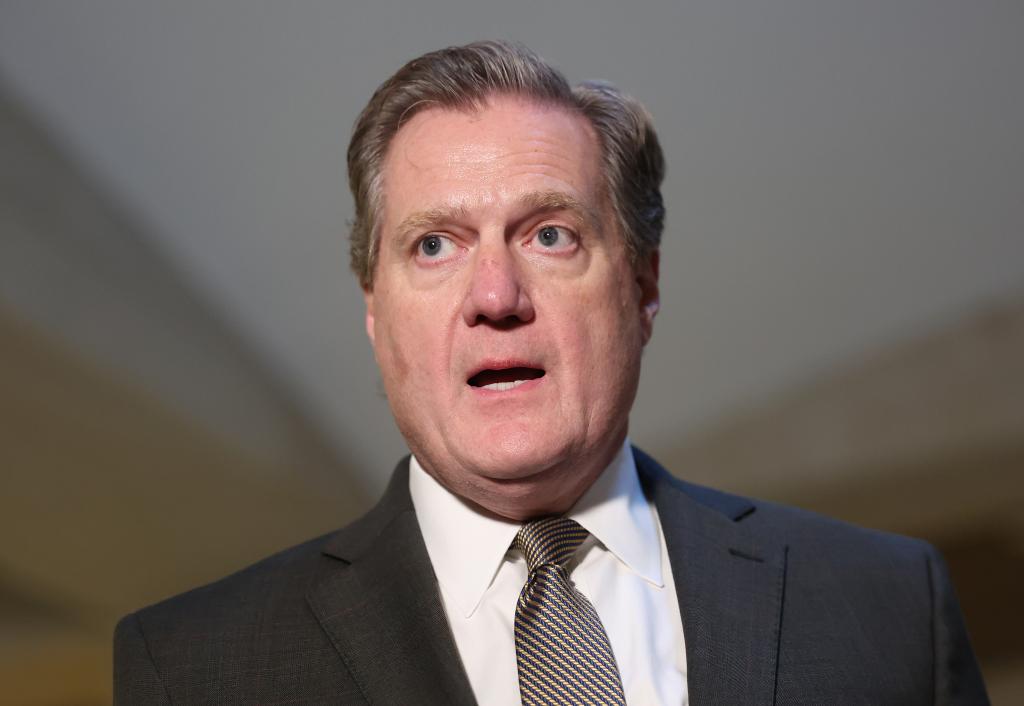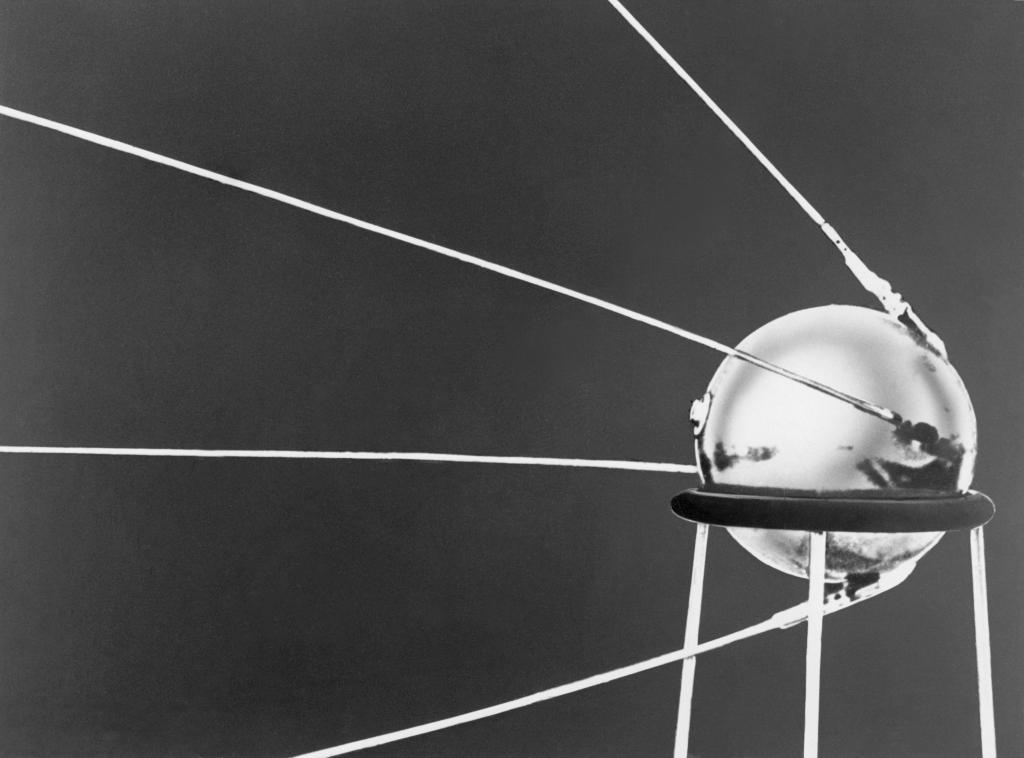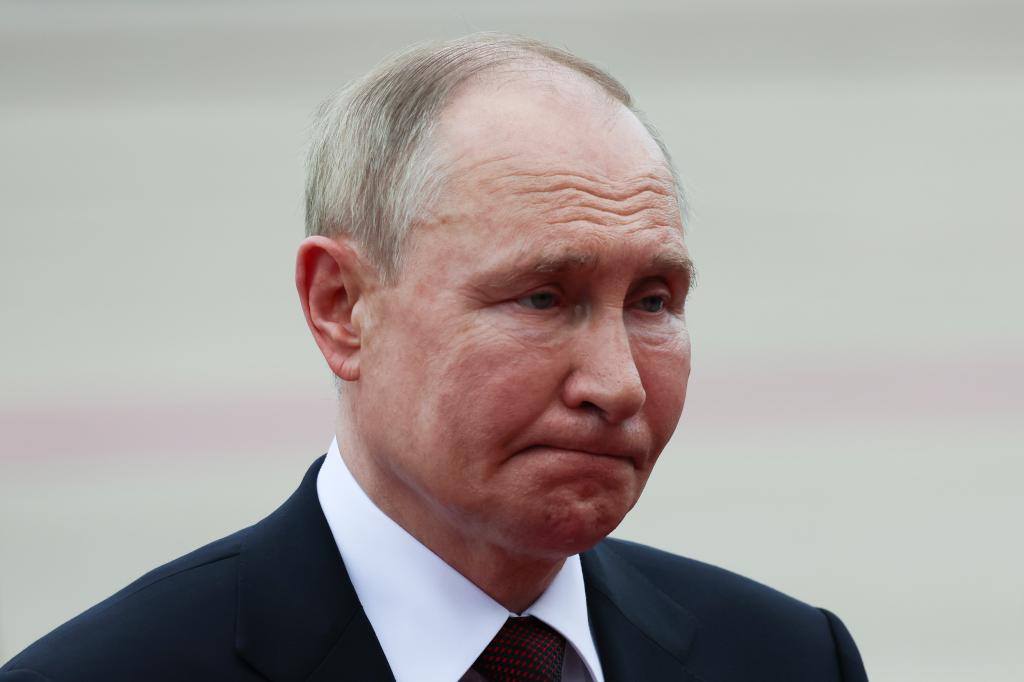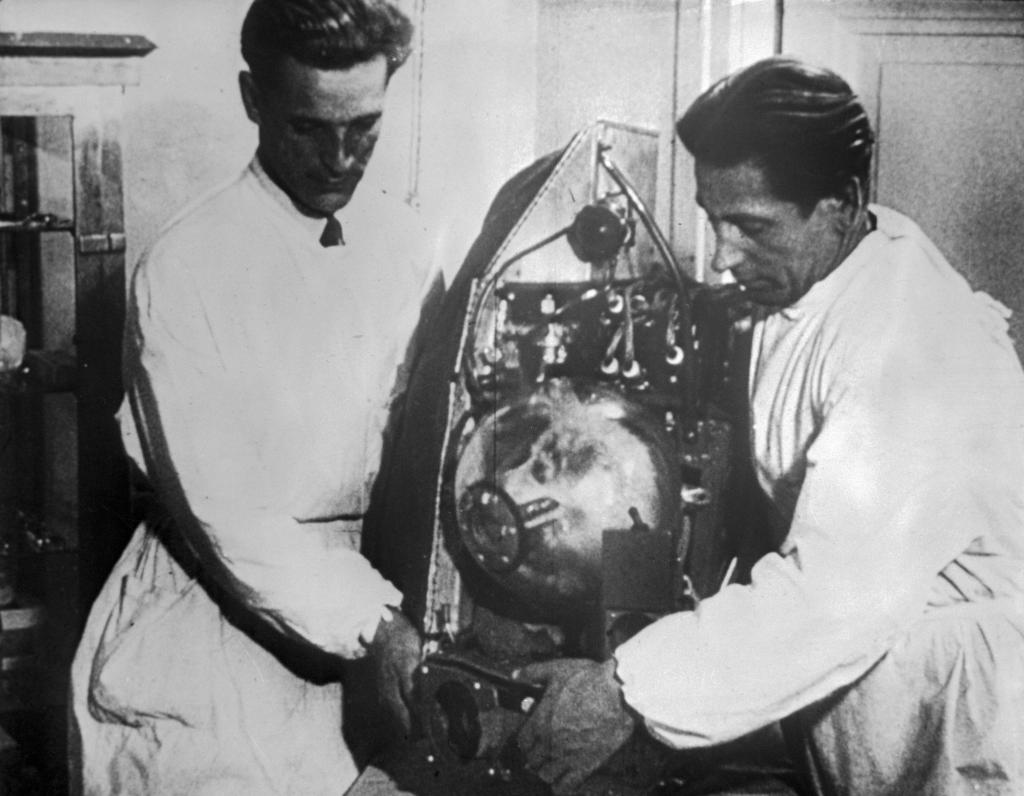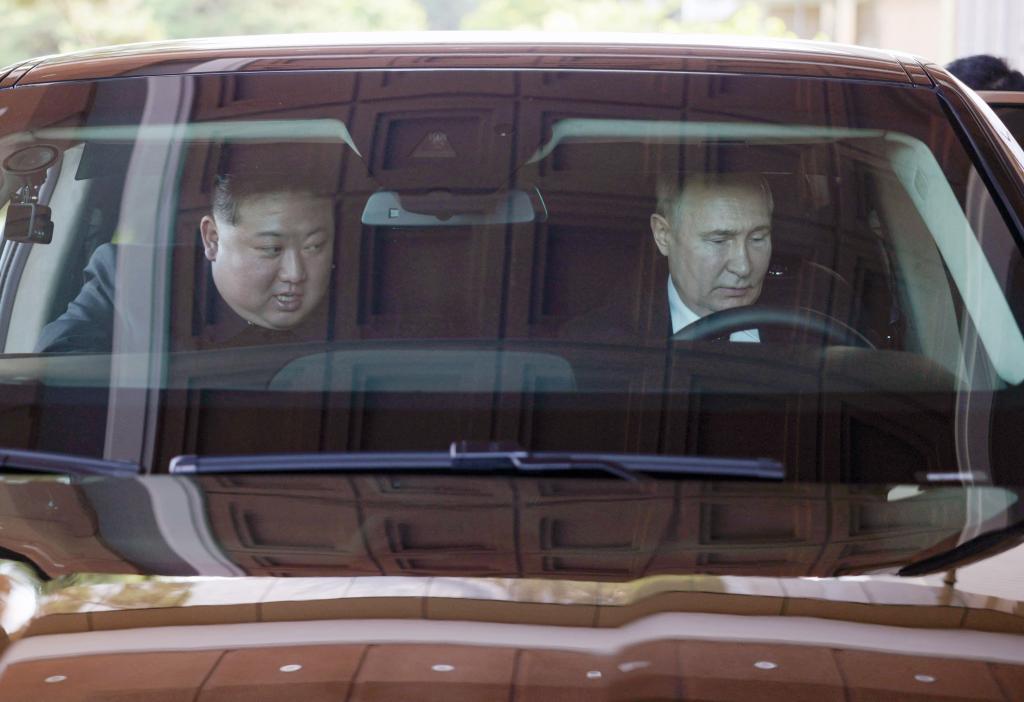US facing ‘Cuban Missile Crisis in space’ as Russia plots anti-satellite nukes, Rep. Mike Turner warns
WASHINGTON – America is on the brink of a new Cuban Missile Crisis — this time in space — as Russia develops nuclear anti-satellite armaments while the Biden administration twiddles its thumbs, House Intelligence Committee Chairman Mike Turner said Thursday.
Turner (R-Ohio) called on President Biden to crank up the pressure to prevent Moscow from launching the weapon — which could wipe out everything from GPS to cell service and the internet, eliminating many of the conveniences of modern life — during an event at the Center for Strategic and International Studies in the nation’s capital.
“The Space Age began when Russia launched Sputnik in 1957. The eyes of the world turned to the sky and wondered how space and technology would now change life on Earth,” he said. “The Space Age will end when Russia launches its nuclear anti-satellite weapon into orbit.”
Turner added that Space Force Chief of Staff Gen. B. Chance Saltzman has referred to the feared launch date as “Day Zero” due to the massive impact it would have on military and civilian life.
“From that day forward, the assumption on Earth must be that in order to preserve our economic, social, and military structures, we must have an alternative to space. Right now, there isn’t one,” he said. “Trillions and trillions of dollars and time we don’t have will be required to build duplicative and redundant systems just to preserve what we accomplished in the Space Age.”
‘Putin thrives in secrecy’
The Biden administration reluctantly admitted in February that the US intelligence committee had confirmed Russia has been working for years to send nukes into space, which Turner said only happened after “overwhelming, bipartisan” pressure from Congress “to make public the emerging threat.”
“The fact that it took the House Intelligence Committee to do so, I think, shows you some of the waste of time that the administration has had – the fact that they don’t have a response to this,” he said.
But Turner argued the reveal did not go far enough, leaving Americans in the dark about the progress and viability of Russia’s capability.
“The administration says that (Russia’s) developing this, and what I call on them to do, is to tell the world what is the status of this in development,” he said. “Does that mean that this is a drawing on a drafting board? Does this mean this is a research project in a lab? … Does it mean that there’s nuclear warheads that have been created? Is there a satellite?
“All of these are the natural resulting questions for the administration and they’re avoiding this discussion, because they’re avoiding having to admit that they’re not really doing anything,” he added.
While it remains unclear what stage of development the potential game-changing weapon is in, Turner pitched several ideas he said could prevent unpredictable Russian President Vladmir Putin from deploying it.
First, he said, the White House must do more to spell out for the American public the existential threat of US adversaries’ nuclear advancements, surmising that the Biden administration is afraid to reveal that they aren’t properly addressing the risk.
“The administration, I believe, is reticent to have the discussion because they don’t want to admit that they’re not doing anything, and we are sleepwalking into what it will be an irreversible ‘Day Zero’ effect,” Turner said.
He also said false narratives downplaying the significance of the anti-satellite weapon’s development must be countered.
“The aspect of this being in space is not just, ‘Well, it’s there in space. It’s not destructive unless they use it,'” he said. “No, It’s disruptive on day one … because suddenly we will not be able to count on any of these systems that are there.”
The White House should address the realities of the situation and speak openly about it, the Ohioan said, because “Vladimir Putin thrives in secrecy.”
“You do not hear the administration saying, ‘This is such a red line, this is such a change and catastrophic dynamic that places at risk all of the accomplishments that we have in integrating space in the economy, our international defense and communications,'” he said.
In addition to public warnings, Turner said the White House must pursue key non-military deterrents to prevent Moscow from launching such a weapon, including tighter sanctions.
“That ‘red line’ is so great that we [need] to implement an additional regime of financial restrictions, of sanctions, and even look to what are we going to do with our allies and NATO to make such a strong statement (for) Russia to understand that this is not something that is going to be accepted,” he added.
Modernization
He also suggested the US should invest more in modernizing its nuclear stockpile, bringing advancements to weapons that, in some cases, have been in storage for decades.
“The Biden administration is incredibly reluctant to take any action that would appear to be escalatory. However, Russia is the escalatory aggressor. Escalation has already occurred,” he said. “Now, the United States must stand with our allies to stop ‘Day Zero’ and preserve space.”
For its part, the Biden administration has encouraged the improvement of its nuclear stockpile, with Defense Secretary Lloyd Austin repeatedly calling for new investment.
The Pentagon, in its 2022 Nuclear Posture Review, called on the US to update the aging supply as the nation prepares to contend with two major nuclear-armed adversaries – Russia and China –for the first time ever.
The 2022 report said that while Moscow and Beijing have been improving and expanding their nuclear and ballistic missile capabilities, the US has focused on repairing its existing stockpile rather than developing new weapons to keep pace.
“At a time of rising nuclear risks, a partial refurbishment strategy no longer serves our interests,” the document said. “We must develop and field a balanced, flexible stockpile capable of [keeping up with] pacing threats, responding to uncertainty, and maintaining effectiveness.”
Russia already has a slightly higher number of nuclear warheads than the US — with an estimated 5,889 in its stockpile compared to the US’ estimated 5,244, according to the Washington-based Arms Control Association.
Meanwhile, China had roughly 500 nukes as of 2023 – and Pentagon experts have predicted that number will surpass 1,000 by 2030.
Lacking leadership
There are, in theory, diplomatic measures that could be taken, Turner said Thursday, “but such treaties are negotiated through strength – something the Biden administration seems incapable of showing in order to avoid Day Zero.”
The Republican closed by arguing that “Day Zero can be avoided.”
“Imagine how different the world would have been if President Kennedy had allowed Khrushchev to place nuclear weapons in Cuba [in October 1962],” Turner said. “Europe would not be free. The United States would have been too fearful to challenge Russia in Europe with nuclear weapons just off the coast of Florida.”
“Just as Khrushchev could have held the United States hostage with nuclear threats from Cuba, Vladimir Putin will hold the world’s space assets hostage to counter attempts to stop him from reassembling the Soviet Union,” Turner warned.
“The outcome was different in the Cuban Missile Crisis (because) we had President Kennedy,” he said. “We need leadership by the administration – and we certainly need a dialogue worldwide to understand and call out really what are the Russians doing and what should the response be.”









